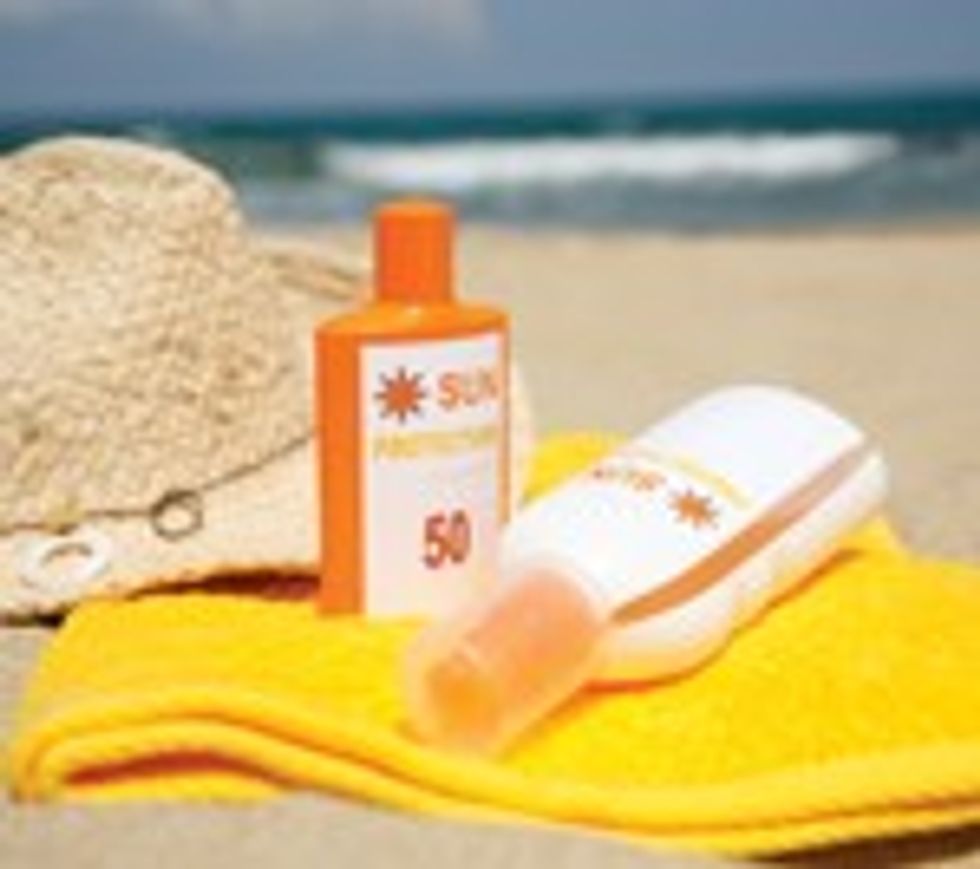The Skinny on Sunscreen, Vitamin B12 and more!
The Skinny On Sunscreen
Sequins on a sunburn—ouch! With Nationals just around the corner, it’s time to bust out the sunscreen. DS exposes the truth behind the most common sunscreen myths.
Myth:
All sunscreens are created equal.
Truth:
The American Academy of Dermatology recommends that everyone use a water-repellent sunscreen with an SPF of at least 30. Choose a
broad-spectrum sunscreen that protects against UVB rays, which cause sunburn and skin cancer, and UVA rays, which cause wrinkles and age spots. Look for ingredients such as salicylates and cinnamates to fend off UVB rays and oxybenzone, sulisobenzone and avobenzone to fend off UVA rays.
Myth:
I don’t need to use sunscreen because I have dark skin and rarely burn.
Truth:
Everyone should use sunscreen, regardless of skin type, because even the darkest skin can burn. You should be lathering on about one ounce (enough to fill a nail polish bottle) every time you apply. Don’t forget to use sunscreen-infused lip balm, too! We like Softlips Vanilla with SPF 20.
Myth:
It’s cold and cloudy outside, so I won’t get sunburned.
Truth:
Up to 80 percent of the sun’s ultraviolet rays can reach the earth through an overcast sky. You can even get sunburned in the shade because the sun’s rays reflect off snow, sand, water and concrete. Apply sunscreen
30 minutes before heading outside, even if it doesn’t feel hot or look bright.
Myth:
I only need to apply sunscreen in the morning because the bottle says “all-day protection.”
Truth:
Your sunscreen may claim long-term protection, but it’s important to reapply throughout the day. Even water-resistant sunscreens tend to rub off after about 40 minutes in the pool. Reapply every two hours or each time you get out of the water.
Don’t forget:
Sunscreens are guaranteed to work for up to three years, but after that, they can lose their effectiveness. Check the expiration date!
Pom-tastic!
A recent study suggests that pomegranate juice could help fight breast cancer. Pomegranates contain ellagic acid, which can slow and even prevent the growth of breast cancer cells. Although the study is ongoing, we know for sure that this fruit is packed with heart-healthy antioxidants, so add a little pom to your diet for a heart-happy day!
Did You Know?
The best way to keep your brain in top shape is to regularly consume vitamin B12, found in seafood and poultry. Research shows that people with low levels of vitamin B12 can have difficulty concentrating and may experience fatigue and shrinkage of brain mass. Yikes! Add some salmon or chicken to your diet, and your petit allegro might seem a little easier.
Tip:
Do you have trouble winding down after an intense rehearsal? Try gently massaging the space between your eyebrows to help you fall asleep.
Photo by iStock




